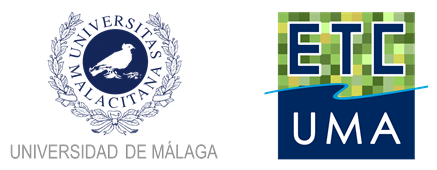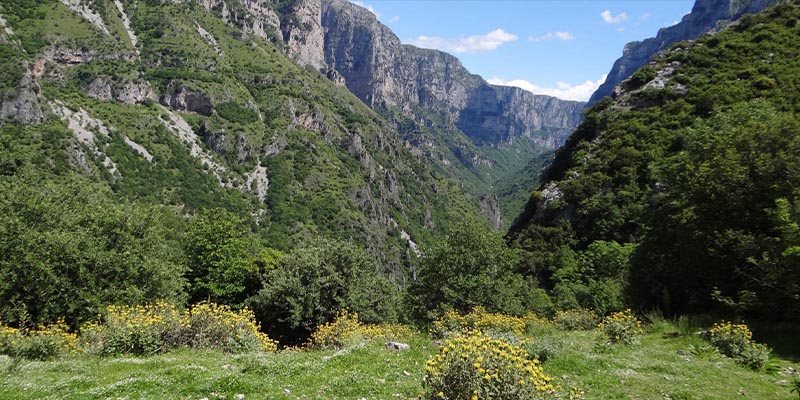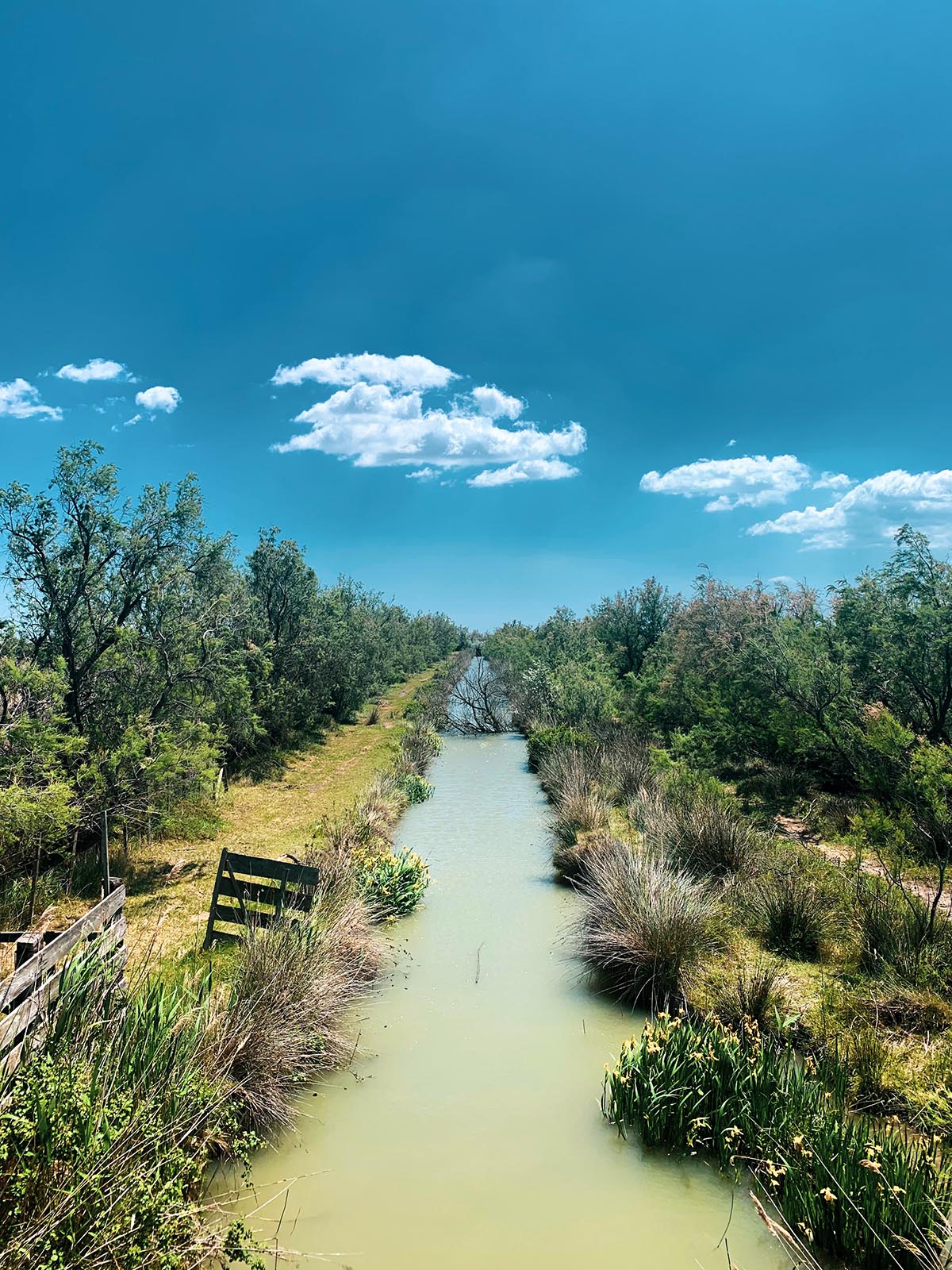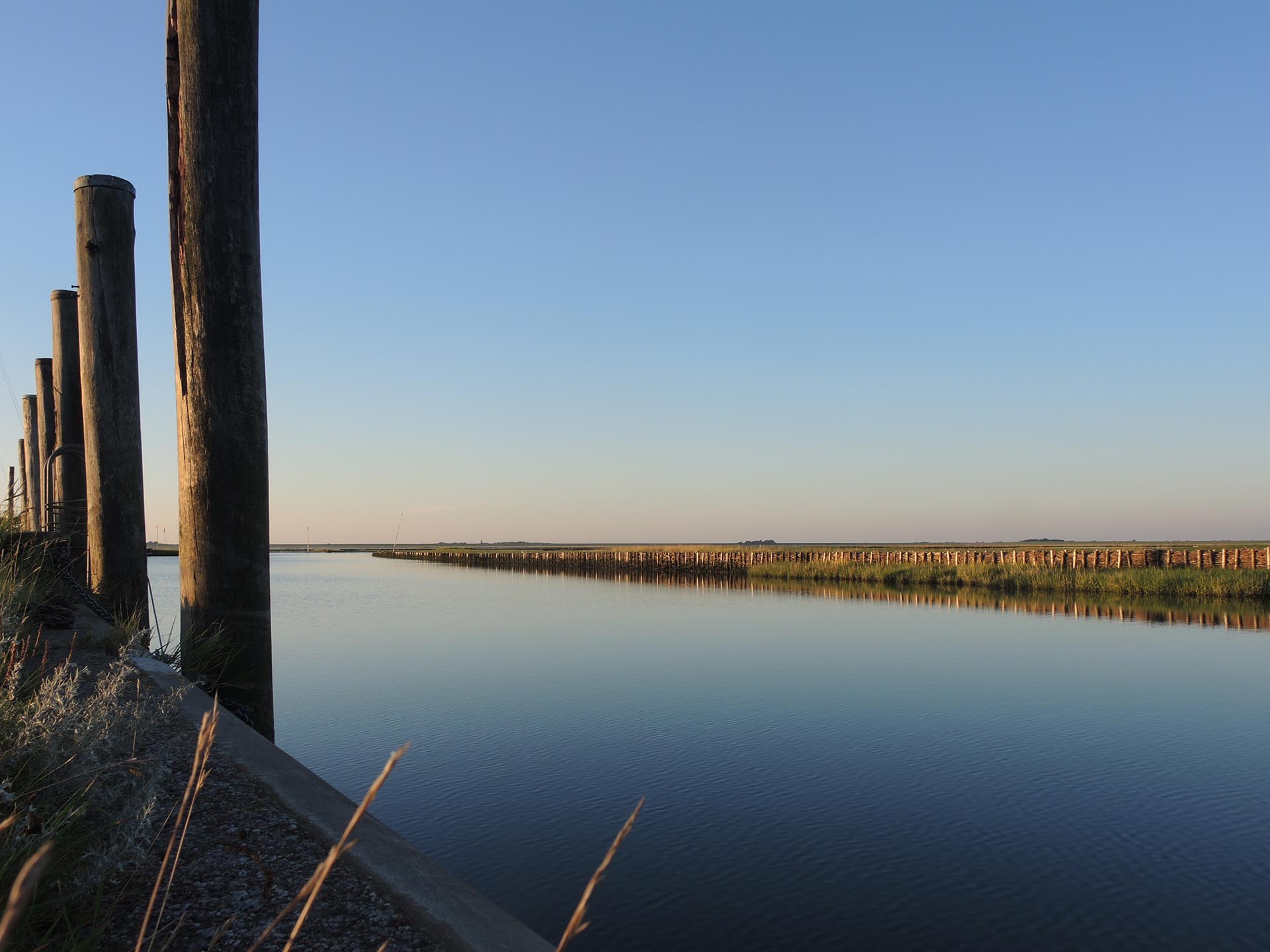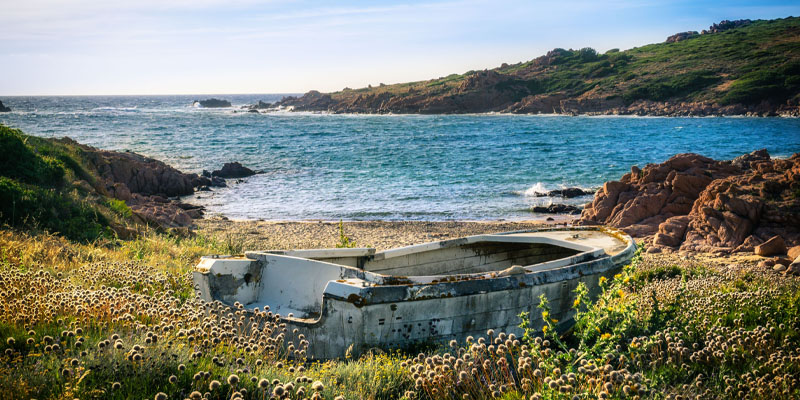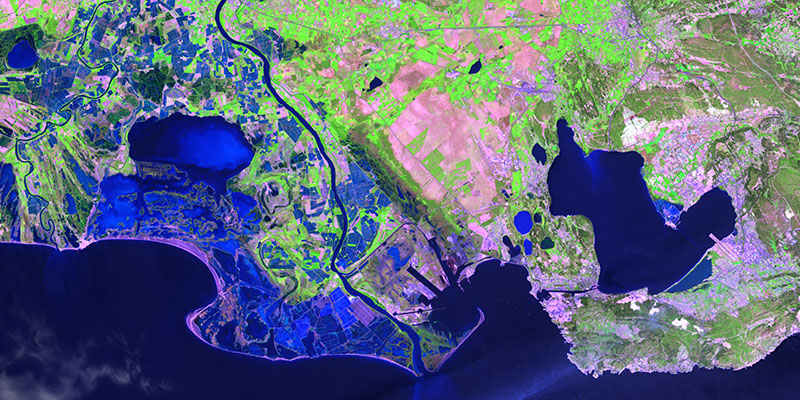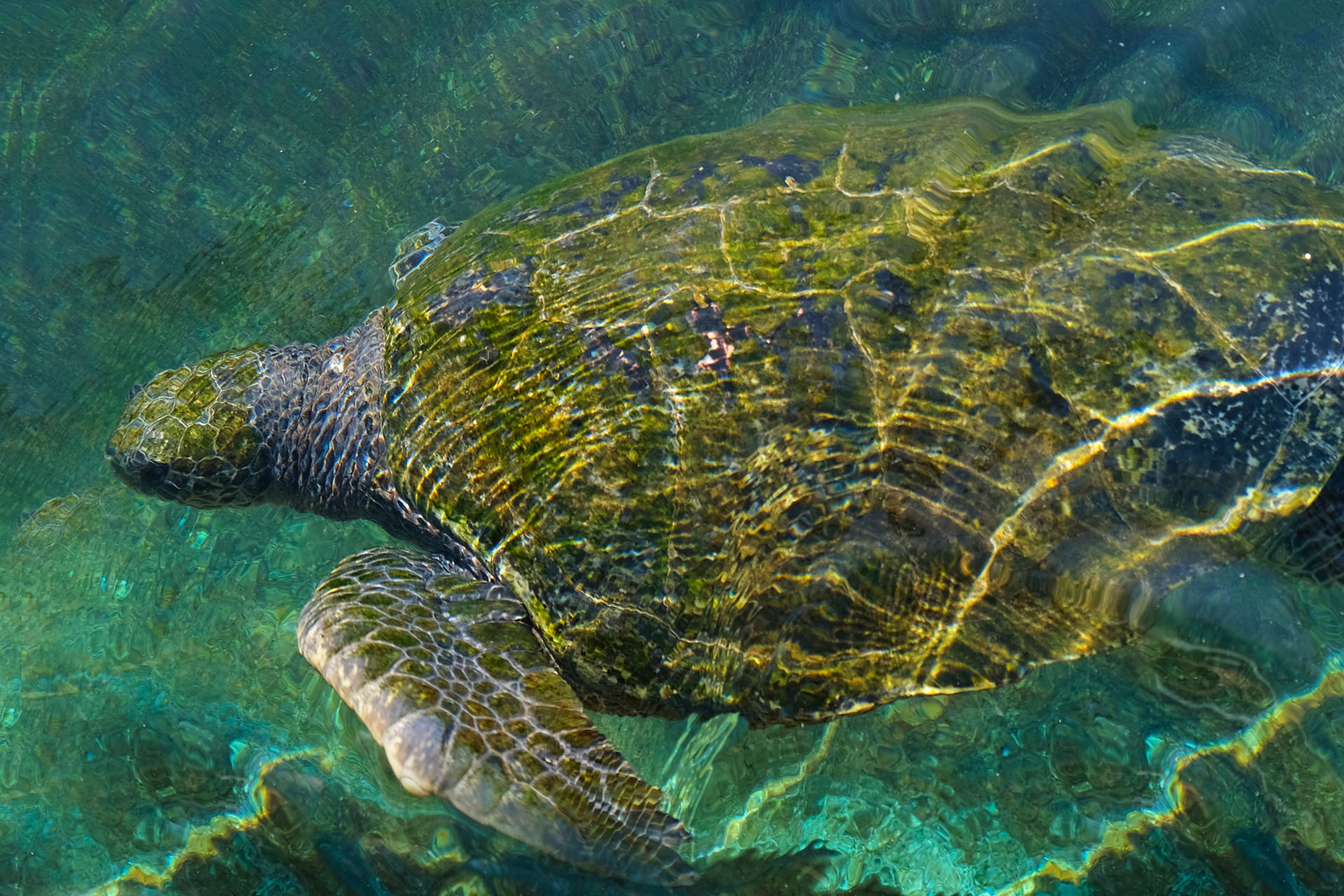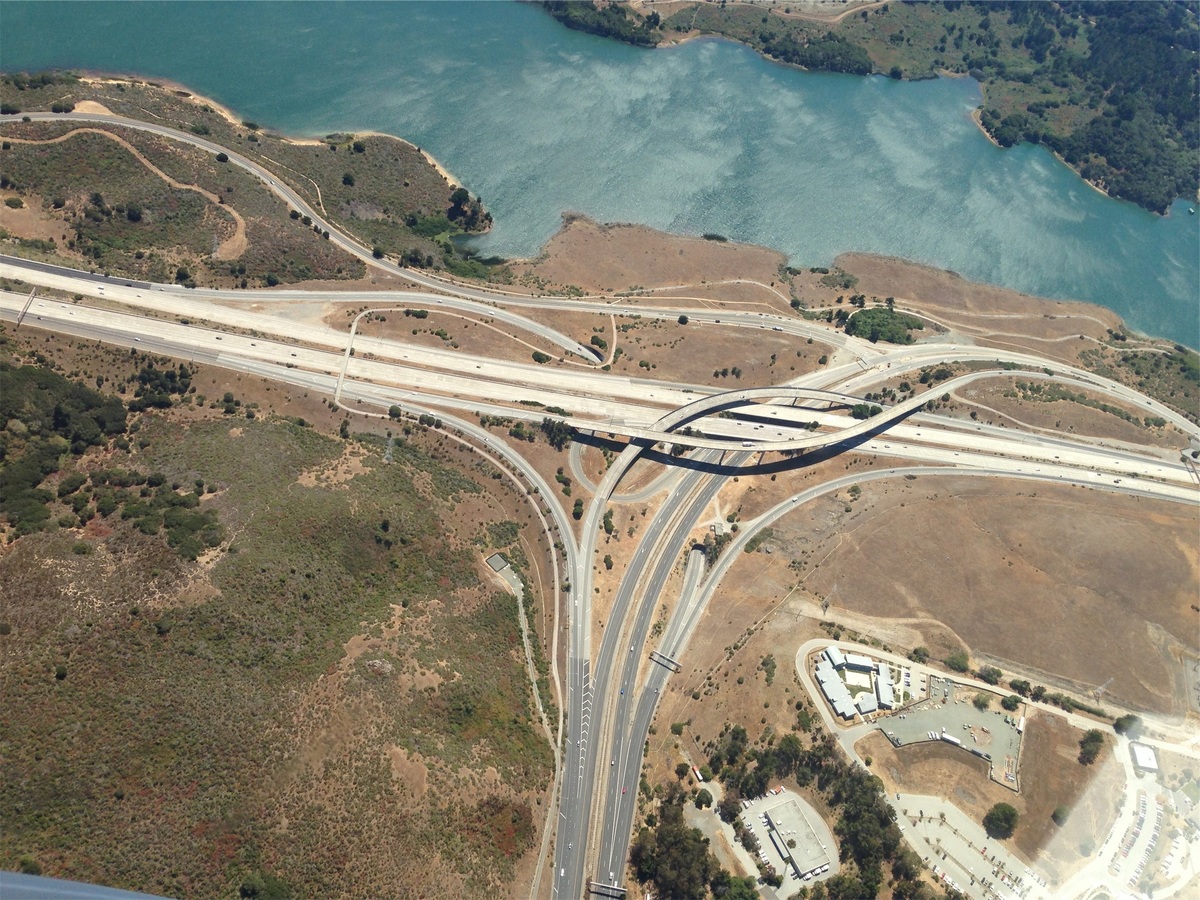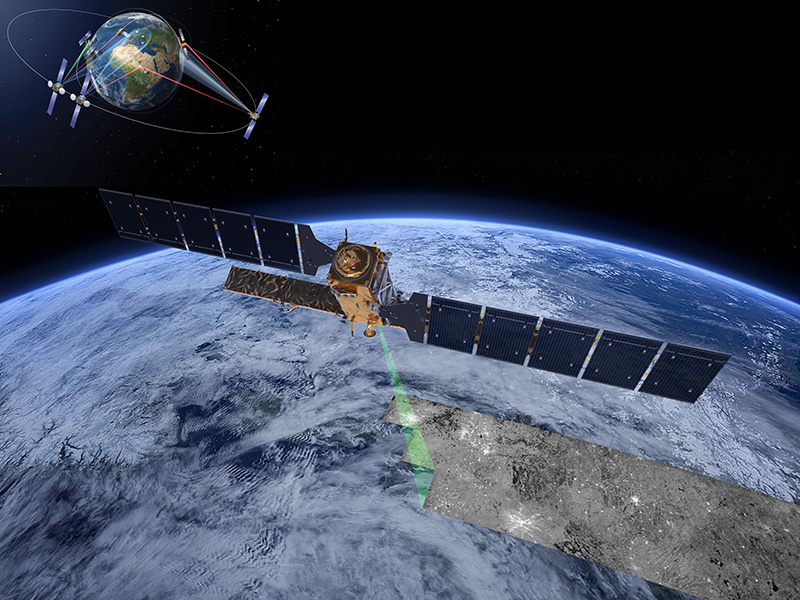European topic centre - university of malaga
Meet our team members

Christoph Schröder
GIS specialist and project manager
christoph.schroder@uma.es
+34 951 952 906
Based on my MSc in Geography (University of Bonn) I have developed expertise in Geographic Information Systems and land use/cover change analysis from local to global scale with particular interest in the Mediterranean. Over the last few years, I have developed a strong involvement in science-policy interfaces on the European level, trying to find smart ways to solve important environmental issues relevant to policy-makers.
The main focus of my activities at ETC-UMA is on data integration and thematic assessment on European scale for a wide range of topics from sustainable tourism to nutrient inputs on agro-ecosystems. This data-driven work is supporting the European Environment Agency in their policy monitoring and formulation. I have also applied my GIS expertise on a variety of projects dealing with terrestrial and marine ecosystems (Med-IAMER) and territorial development (ESPON ESaTDOR). In recent year, I have gained a profound expertise in the assessment of user requirements for Earth Observation products, particularly addressing habitat and wetland monitoring.
Since 2014, I am local contact point for the Erasmus Mundus project gSmart, facilitating the selection and support to students and researchers from Central Asian partner universities.
Do not hesitate to get in touch with me via e-mail or LinkedIn.
RESOURCES
Book Chapters
Rodríguez-Rodríguez, D.; Sánchez-Espinosa, A.; Prem, M.; Abdul-Malak, D.; Schröder, C.
In: Chapter 9, pp. 173-186, Tirant Editorial, 1, 2024, ISBN: 978-84-1183-238-0.
Abstract | Links | BibTeX | Tags: Conservation and management, Land and soil, Mediterranean sea, Pressures, Transboundary management
@inbook{nokey,
title = {Mediterranean landscape in trasition. Nuevos enfoques para hacer frente a los nuevos retos sociales y medioambientales.},
author = {D. Rodríguez-Rodríguez and A. Sánchez-Espinosa and M. Prem and D. Abdul-Malak and C. Schröder},
url = {https://editorial.tirant.com/es/libro/mediterranean-landscape-in-trasition-nuevos-enfoques-para-hacer-frente-a-los-nuevos-retos-sociales-y-medioambientales-maria-jose-marquez-ballesteros-9788411832380?busqueda=mediterranean+landscape+in+transition&},
isbn = { 978-84-1183-238-0},
year = {2024},
date = {2024-06-05},
urldate = {2024-06-05},
pages = {173-186},
publisher = {Tirant Editorial},
edition = {1},
chapter = {9},
abstract = {El litoral mediterráneo se enfrenta a un futuro con importantes retos y desafíos como consecuencia de su fuerte urbanización y el impacto del cambio climático. Con esta premisa, la red internacional de investigadores Mediterránean Landscape in Transition presenta esta publicación que recoge sus principales reflexiones para hacer frente a esta realidad. La intersección de las diferentes aportaciones nos muestra la complejidad y la urgencia de la situación a la que se enfrentan los paisajes mediterráneos y sus costas; donde la evaluación y medición de las dinámicas de transformación del litoral, en el contexto del cambio climático y la resiliencia, son fundamentales para comprender y conservar estos valiosos ecosistemas.
El lector conocerá las vulnerabilidades que amenazan su conservación que afecta tanto a la biodiversidad como a sus comunidades locales, subrayando la necesidad de adaptación y resiliencia para su supervivencia. También se aborda el problema del turismo masivo y la turistificación, proponiendo estrategias para equilibrar la actividad turística con la preservación ambiental y cultural. Todo ello, en un contexto donde los movimientos sociales y territoriales desempeñan un papel relevante en su defensa; y donde el paisaje social se convierte en una tarea crucial para garantizar la sostenibilidad y el bienestar de las comunidades y la naturaleza, en estos entornos costeros tan especiales.},
keywords = {Conservation and management, Land and soil, Mediterranean sea, Pressures, Transboundary management},
pubstate = {published},
tppubtype = {inbook}
}
El lector conocerá las vulnerabilidades que amenazan su conservación que afecta tanto a la biodiversidad como a sus comunidades locales, subrayando la necesidad de adaptación y resiliencia para su supervivencia. También se aborda el problema del turismo masivo y la turistificación, proponiendo estrategias para equilibrar la actividad turística con la preservación ambiental y cultural. Todo ello, en un contexto donde los movimientos sociales y territoriales desempeñan un papel relevante en su defensa; y donde el paisaje social se convierte en una tarea crucial para garantizar la sostenibilidad y el bienestar de las comunidades y la naturaleza, en estos entornos costeros tan especiales.
Journal Articles
Rodríguez-Rodríguez, D.; Sánchez-Espinosa, A.; Schröder, C.; Abdul-Malak, D.; Rodríguez, J.
Cumulative pressures and low protection: a concerning blend for Mediterranean MPAs Journal Article
In: Marine Pollution Bulletin, vol. 101, pp. 288-295, 2015.
Abstract | Links | BibTeX | Tags: Climate Change, Marine protected areas, Mediterranean sea, Pressures
@article{Rodríguez-Rodrígueza2015,
title = {Cumulative pressures and low protection: a concerning blend for Mediterranean MPAs},
author = {D. Rodríguez-Rodríguez and A. Sánchez-Espinosa and C. Schröder and D. Abdul-Malak and J. Rodríguez},
url = {https://www.sciencedirect.com/science/article/pii/S0025326X15300540},
doi = {https://doi.org/10.1016/j.marpolbul.2015.09.039},
year = {2015},
date = {2015-12-01},
journal = {Marine Pollution Bulletin},
volume = {101},
pages = {288-295},
abstract = {This study classifies Mediterranean marine protected areas (MPAs) according to the combined result of pressure level and protection. Six major marine environment pressures were considered: pressures from fish farms, fishing, marine litter, pressures from marinas, pollution from maritime transport, and climate change. MPA protection was assessed through legal protection and management effort. Most MPA area in the Mediterranean is under relatively high pressure level and afforded low protection. Inshore areas show higher pressure levels. Five marine ecoregions, nine countries and nineteen MPA designation categories have over 50% of their MPA area under major concern. The mean number of cumulative pressures occurring in priority MPAs ranges between three and four, although the mean combined intensity of those pressures is low. However, these figures are most likely underestimated, especially for the southern Mediterranean. The most concerning pressures to MPAs regarding extent and intensity were: climate change, fishing and pollution from maritime transport.},
keywords = {Climate Change, Marine protected areas, Mediterranean sea, Pressures},
pubstate = {published},
tppubtype = {article}
}
Proceedings
Schröder, C.; del Mar Otero, M.; Ivanova, S.; Petrov, P.; Camacho, A.; Rochera, C.; Guelmami, A.; Ronse, M.; Fitoka, E.; Hatziiordanou, L.; Puddu, M.; Eremita, G.
Fundación Nueva Cultura del Agua, 2025, ISBN: 978-84-608-2132-8.
Abstract | Links | BibTeX | Tags: Climate Change, Ecosystem services, Mediterranean sea, Wetlands
@proceedings{nokey,
title = {Wetland-Based Solutions: Testing and Transfer of Methodologies to support Climate Change Adapation and Mitigation in Wetland Ecosystems},
author = {C. Schröder and M. del Mar Otero and S. Ivanova and P. Petrov and A. Camacho and C. Rochera and A. Guelmami and M. Ronse and E. Fitoka and L. Hatziiordanou and M. Puddu and G. Eremita},
url = {https://www.etc.uma.es/wp-content/uploads/Schroder_libro_actas_13CIGPA.pdf},
isbn = {978-84-608-2132-8},
year = {2025},
date = {2025-06-01},
urldate = {2025-06-01},
booktitle = {Desde la escasez hacia la reasignación social y ambiental del agua},
publisher = {Fundación Nueva Cultura del Agua},
abstract = {Recent policies at EU and national level have provided the background for more active intervention to restore a significant part of degraded aquatic ecosystems, protect biodiversity and address the effects of Global Change. In this context, adaptation to the consequences of climate change is a key challenge in the Euro-Mediterranean territory. Several opportunities arise to reinforce adaptation by shifting our attention to Nature-based Solutions (NbS) and among them “wetland-based solutions”. Wetland loss and degradation is a sign that the recognition of the wetland climate services as a catalyst for the improvement of the quality of human life and sustainable growth, is probably weak at the various governance levels. The Interreg Euro-MED funded project Wetland4Change (2023-2025) aims to validate transferable solutions based on wetland conservation and restoration for climate adaptation and mitigation, to accelerate the capacities of wetland managers and of policy makers to cope with the climate crisis at local and transnational level, by improving take up of science-based knowledge and governance mechanisms, through assessments, guidance, capacity building and experience exchange. The main project outputs are two wetland-based solutions tested and validated in 5 pilot sites in 5 Euro-Mediterranean countries, namely Bulgaria, Greece, Italy, France and Spain These solutions include carbon-sequestration and flood regulation. The project goes beyond existing practices through the novelty in assessing carbon sequestration and flood regulation capacities of wetlands for national authority obligations (i.e GAEC 2 for the agriculture sector). As a result, the project will improve the knowledge and the management capacities of the involved stakeholders to promote and plan wetlands protection and conservation as nature-based solutions in climate change adaptation, mitigation and risk prevention.},
keywords = {Climate Change, Ecosystem services, Mediterranean sea, Wetlands},
pubstate = {published},
tppubtype = {proceedings}
}
Technical Reports
Schröder, C.; Sánchez-Espinosa, A.; Teixidor, A.; Costa, G.; Galán, R.; Prieto, L.; Balestracci, G.; Kuhn, M. A.; Marín, P.; Martín, A.; Numa, C.; Sciacca, A.
Mapping the Impact of Blue Tourism in the Mediterranean: Vulnerability Assessment of Coastal and Marine Ecosystems Technical Report
2024.
Abstract | Links | BibTeX | Tags: Biodiversity, Conservation and management, Environmental conservation, Marine protected areas, Mediterranean sea, Pressures, Tourism, Transboundary management
@techreport{Schröder2024,
title = {Mapping the Impact of Blue Tourism in the Mediterranean: Vulnerability Assessment of Coastal and Marine Ecosystems},
author = {C. Schröder and A. Sánchez-Espinosa and A. Teixidor and G. Costa and R. Galán and L. Prieto and G. Balestracci and M.A. Kuhn and P. Marín and A. Martín and C. Numa and A. Sciacca},
url = {https://www.etc.uma.es/wp-content/uploads/Mapping-the-Impact-of-Blue-Tourism-in-the-Mediterranean-web.pdf},
year = {2024},
date = {2024-09-03},
abstract = {The IUCN Centre for Mediterranean Cooperation with the support of ETC-UMA in the framework of the Blue Tourism Initiative, has released a comprehensive report entitled “Mapping the Impact of Blue Tourism in the Mediterranean: Vulnerability Assessment of Coastal and Marine Ecosystems.” This groundbreaking report reveals how tourism is affecting the Mediterranean’s coastal and marine ecosystems and provides actionable recommendations to promote sustainable blue tourism practices.
The spatial assessment identifies highly vulnerable regions in the Mediterranean, focusing on cumulative tourism pressures and the lack of protected ecologically sensitive areas. Regions such as Cádiz and Malaga in Spain, Antalya and Hatay in Türkiye, Girona and Menorca, Annaba Province in Algeria, and Trieste Province in Italy face high tourism pressures and low protection levels. Even regions with relatively high protection levels still experience significant tourism pressures, while Eastern and Southern Mediterranean countries with low protection levels are extremely vulnerable.
Among its key findings and highlights, we can find the threats to Posidonia oceanica, a unique Mediterranean seagrass, which is under significant threat from leisure boat anchoring. This vital habitat, covering approximately 19,482 square kilometers, provides essential ecosystem services such as carbon sequestration, coastal protection, and habitat provision. The report highlights the pressures from harmful fishing practices and anchoring, especially near major tourist centers. The analysis shows a seasonal increase in leisure boat traffic, with a notable rise in the post-pandemic period.
The report also addresses the threat of vessel collisions with whales in the Northwest Mediterranean. This area is critical for fin whales, hosting up to 70% of the Mediterranean population and significant feeding grounds. It also supports around 50% of the Mediterranean sperm whale population during the summer. The heavy maritime traffic, including goods shipping, passenger transport, and cruise tourism, significantly increases the risk of ship strikes.},
keywords = {Biodiversity, Conservation and management, Environmental conservation, Marine protected areas, Mediterranean sea, Pressures, Tourism, Transboundary management},
pubstate = {published},
tppubtype = {techreport}
}
The spatial assessment identifies highly vulnerable regions in the Mediterranean, focusing on cumulative tourism pressures and the lack of protected ecologically sensitive areas. Regions such as Cádiz and Malaga in Spain, Antalya and Hatay in Türkiye, Girona and Menorca, Annaba Province in Algeria, and Trieste Province in Italy face high tourism pressures and low protection levels. Even regions with relatively high protection levels still experience significant tourism pressures, while Eastern and Southern Mediterranean countries with low protection levels are extremely vulnerable.
Among its key findings and highlights, we can find the threats to Posidonia oceanica, a unique Mediterranean seagrass, which is under significant threat from leisure boat anchoring. This vital habitat, covering approximately 19,482 square kilometers, provides essential ecosystem services such as carbon sequestration, coastal protection, and habitat provision. The report highlights the pressures from harmful fishing practices and anchoring, especially near major tourist centers. The analysis shows a seasonal increase in leisure boat traffic, with a notable rise in the post-pandemic period.
The report also addresses the threat of vessel collisions with whales in the Northwest Mediterranean. This area is critical for fin whales, hosting up to 70% of the Mediterranean population and significant feeding grounds. It also supports around 50% of the Mediterranean sperm whale population during the summer. The heavy maritime traffic, including goods shipping, passenger transport, and cruise tourism, significantly increases the risk of ship strikes.
UNEP-MAP,; Plan-Bleu,; Abdul-Malak, D.; Marín, A. I.; Schröder, C.; Sánchez-Espinosa, A.
SoED 2020 : State of Environment and Development in Mediterranean Technical Report
2020.
Abstract | Links | BibTeX | Tags: Biodiversity, Climate Change, Conservation and management, Environmental conservation, Marine protected areas, Mediterranean sea, Pressures, Protected areas
@techreport{UNEP-MAP2020,
title = {SoED 2020 : State of Environment and Development in Mediterranean},
author = {UNEP-MAP and Plan-Bleu and D. Abdul-Malak and A. I. Marín and C. Schröder and A. Sánchez-Espinosa},
url = {https://planbleu.org/en/soed-2020-state-of-environment-and-development-in-mediterranean/},
year = {2020},
date = {2020-12-01},
abstract = {The SoED provides a comprehensive and up-to-date assessment of environment and development interactions in the Mediterranean region. The 2020 version consists of eight thematic chapters and is complemented by two summary papers: Summary for Decision Makers and Key Messages. Topics covered include: socio-economic drivers and trends; climate change; biodiversity and ecosystem services; economic activities and related pressures; coastal dynamics and related impacts; food and water security; health and environment; and governance.},
keywords = {Biodiversity, Climate Change, Conservation and management, Environmental conservation, Marine protected areas, Mediterranean sea, Pressures, Protected areas},
pubstate = {published},
tppubtype = {techreport}
}
Gomei, M.; Abdulla, A.; Schröder, C.; Yadav, S.; Sánchez-Espinosa, A.; Rodríguez-Rodríguez, D.; Abdul-Malak, D.
Towards 2020: how Mediterranean countries are performing to protect their sea Technical Report
2019.
Links | BibTeX | Tags: Biodiversity, Conservation and management, Environmental conservation, Marine protected areas, Mediterranean sea, Pressures, Protected areas
@techreport{Gomei2019,
title = {Towards 2020: how Mediterranean countries are performing to protect their sea},
author = {M. Gomei and A. Abdulla and C. Schröder and S. Yadav and A. Sánchez-Espinosa and D. Rodríguez-Rodríguez and D. Abdul-Malak},
url = {https://d2ouvy59p0dg6k.cloudfront.net/downloads/towards2020_report_nov2019.pdf},
year = {2019},
date = {2019-11-01},
keywords = {Biodiversity, Conservation and management, Environmental conservation, Marine protected areas, Mediterranean sea, Pressures, Protected areas},
pubstate = {published},
tppubtype = {techreport}
}

RESTORE4Cs 2nd Policy Brief: Unlocking Potential of Coastal Wetlands in Europe: Integration into National Restoration Plans
The second RESTORE4Cs Policy Brief of RESTORE4Cs, “Unlocking Potential of Coastal Wetlands in Europe: Integration into National Restoration Plans“, highlights the critical role of National Restoration Plans (NRPs) under the EU Nature Restoration Regulation in enhancing the restoration and resilience of coastal wetlands. The brief outlines how ...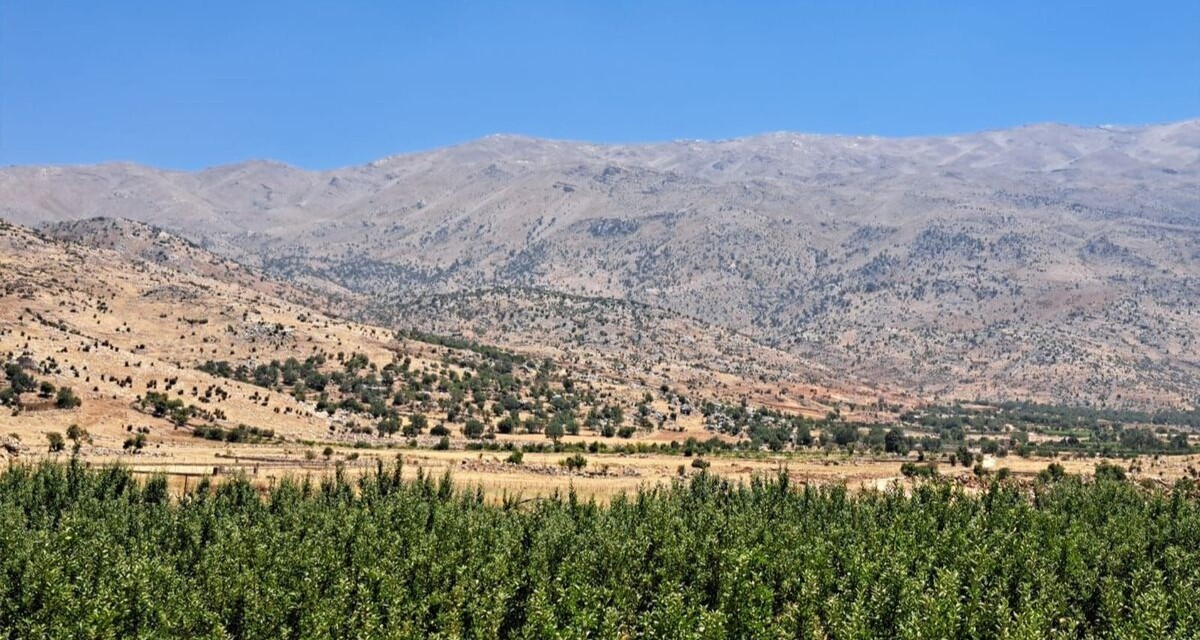
Back in Lebanon with BioConnect: Witnessing nature protection and socioecological resilience in action
As part of ETC-UMA’s role as the external evaluator for the EU-funded BioConnect project, the Centre’s Director, Dania Abdul Malak, carried out a site visit to Lebanon from July 8 to 12 to assess the project’s progress in its third ...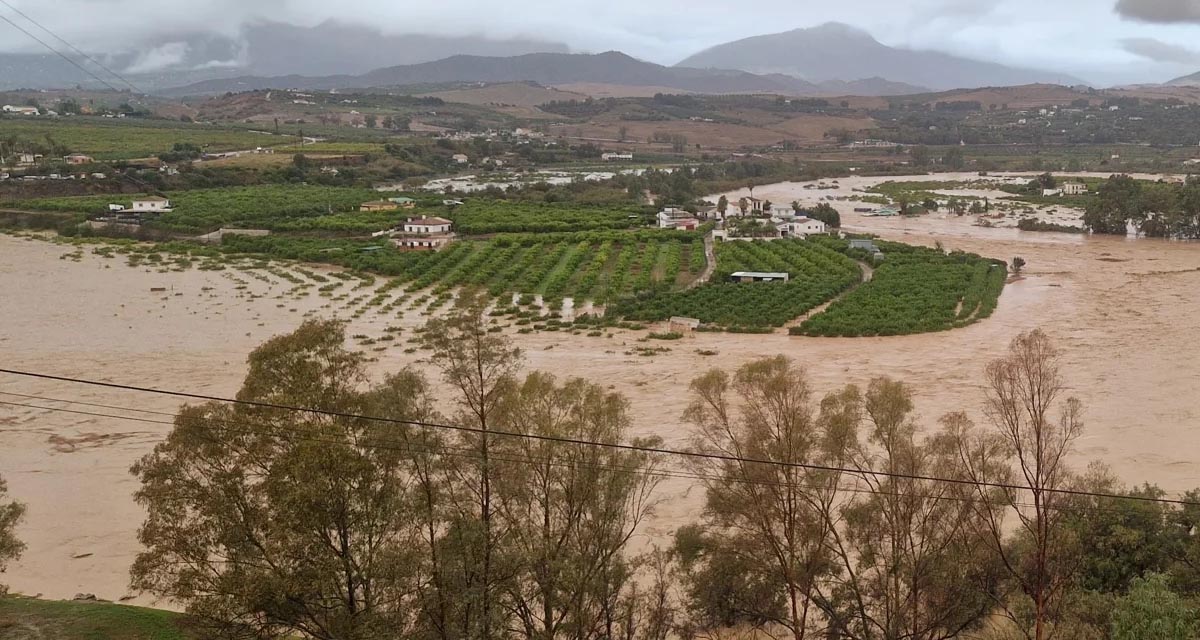
Boosting Climate Resilience: Wetland4Change Project Advances Flood Management Solutions for Mediterranean Coastal Zones
The Mediterranean coastal zone´s combination of multiple severe climate hazards – rising temperatures, water scarcity, sea-level rise, and extreme weather events – makes it a hotspot for highly interconnected climate risks for the ecosystems and societies. Recent catastrophic floods in ...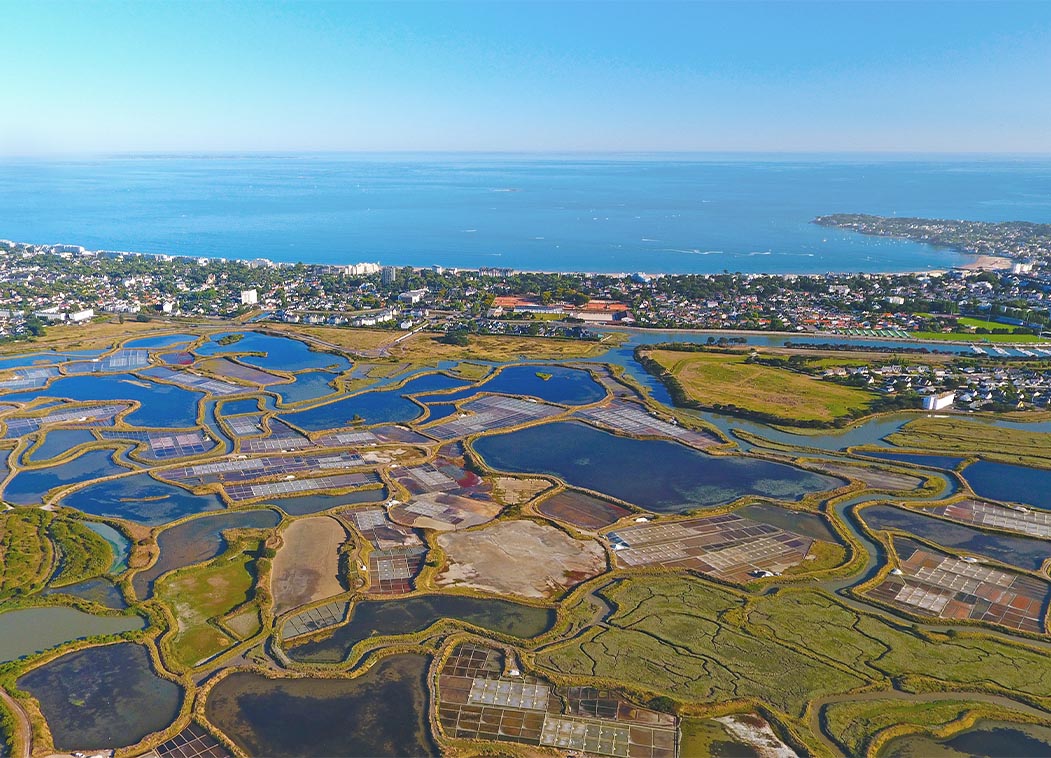
RESTORE4Cs 1st Policy Brief: How can coastal wetlands help achieve EU climate goals?
The first RESTORE4Cs Policy Brief of RESTORE4Cs, “How can coastal wetlands help achieve EU climate goals?“, highlights the importance of European coastal wetlands for reducing Greenhouse Gas emissions. The key messages of the first RESTORE4Cs Policy Brief include: Coastal wetlands are important natural carbon stores, ...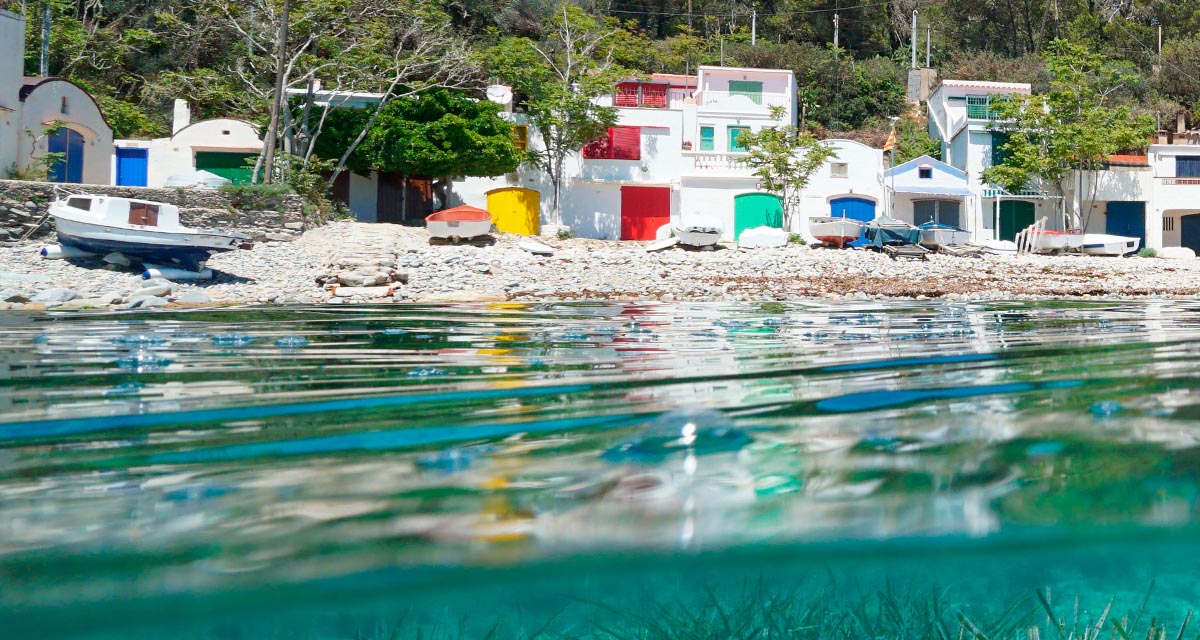
Mapping the Impact of Blue Tourism in the Mediterranean
The IUCN Centre for Mediterranean Cooperation with the support of ETC-UMA in the framework of the Blue Tourism Initiative, has released a comprehensive report entitled “Mapping the Impact of Blue Tourism in the Mediterranean: Vulnerability Assessment of Coastal and Marine ...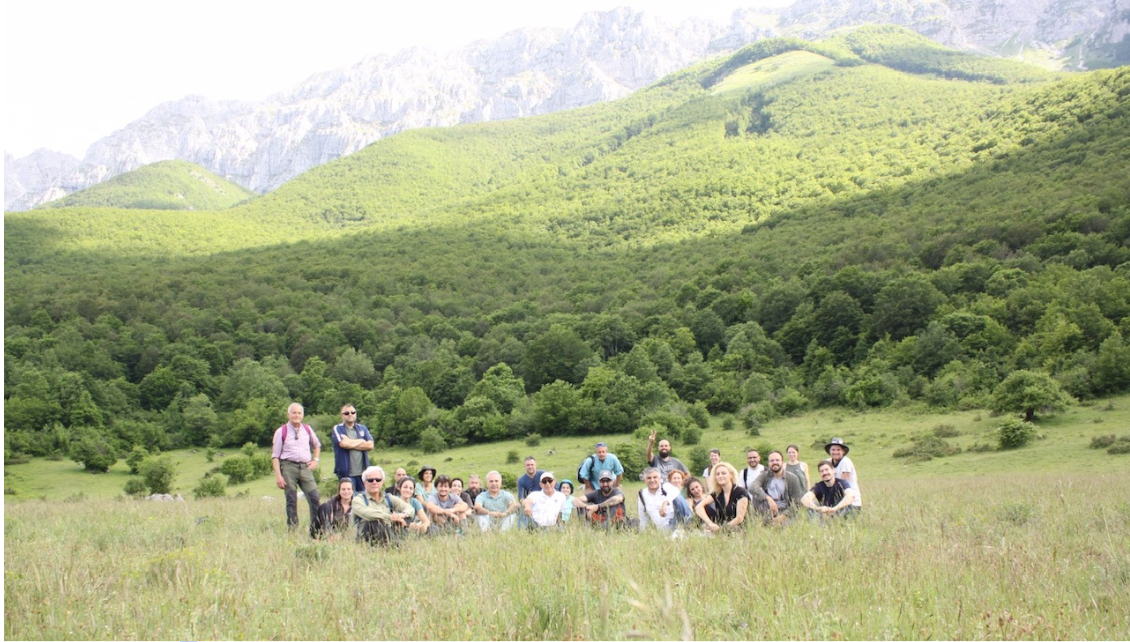
StrategyMedFor Presented at Annual Medforval Meeting 2024
StrategyMedFor was prominently featured at the Annual Medforval Meeting 2024, held from June 5-7 in Fontecchio, Italy. The event brought together 25 practitioners from national parks and natural reserves across 9 Mediterranean countries, providing a valuable platform for StrategyMedFor to ...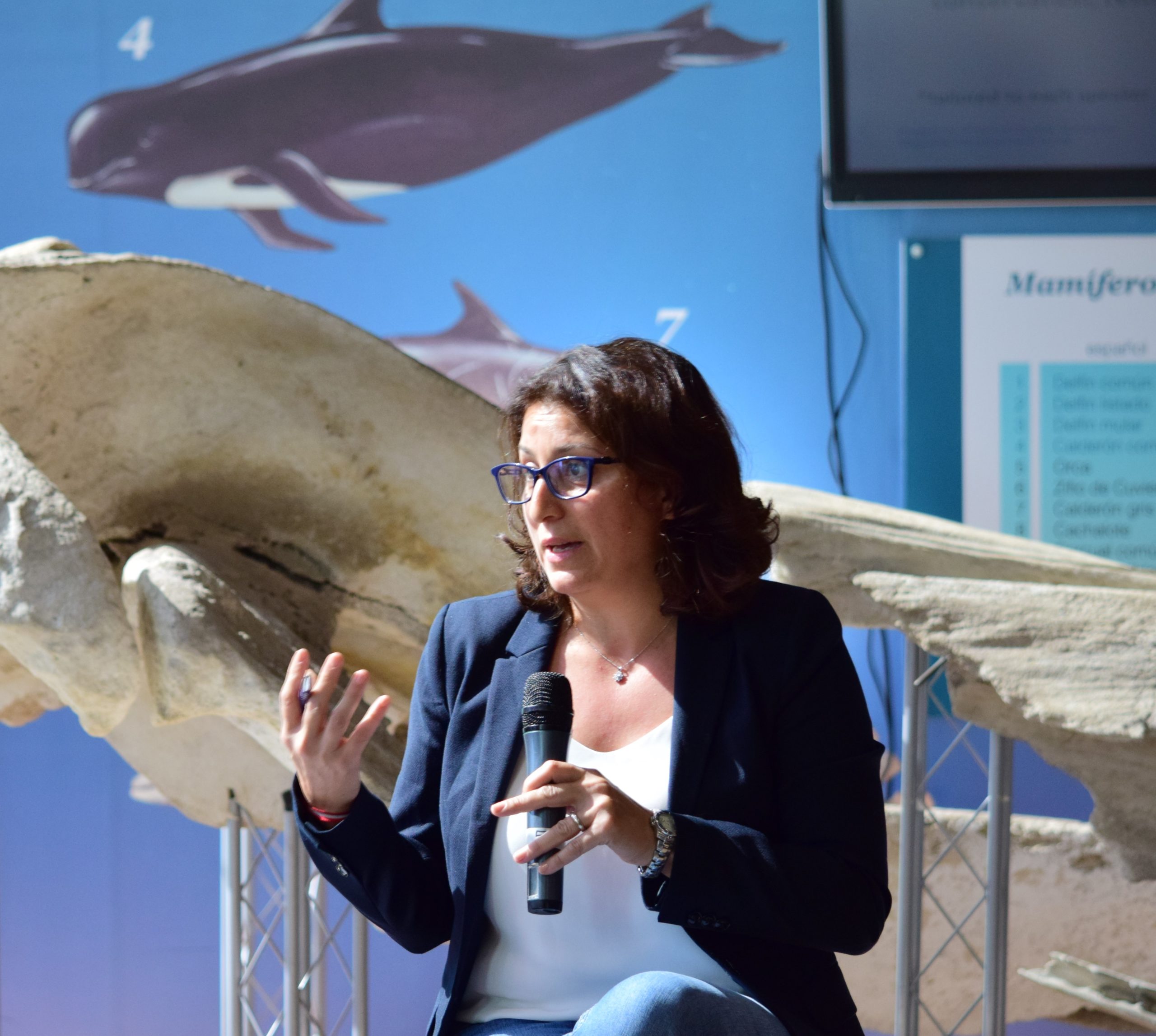
Celebrating leadership in environmental management: an interview with Dania Abdul Malak
From designing integrated ecosystem assessments in Europe and the Mediterranean to transforming outcomes into evidence-based recommendations for regional stakeholders, the European Topic Centre on Spatial Analysis and Synthesis (ETC-UMA) stands as a flagship for territorial cooperation. At the forefront of ...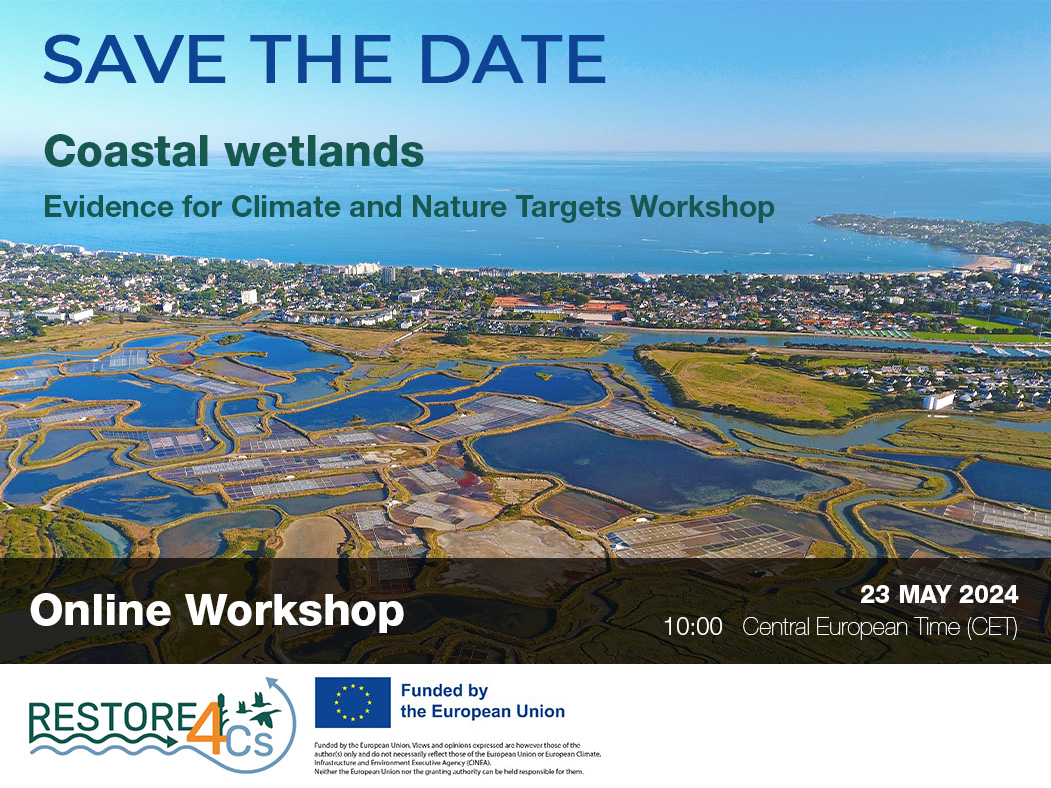
Save the date! Unlocking solutions for coastal conservation in Europe
How can coastal wetlands respond to major European Union objectives such as climate neutrality, biodiversity protection, and pollution reduction? What key role do coastal wetlands play in achieving EU commitments for climate mitigation and biodiversity conservation? The European Topic Centre ...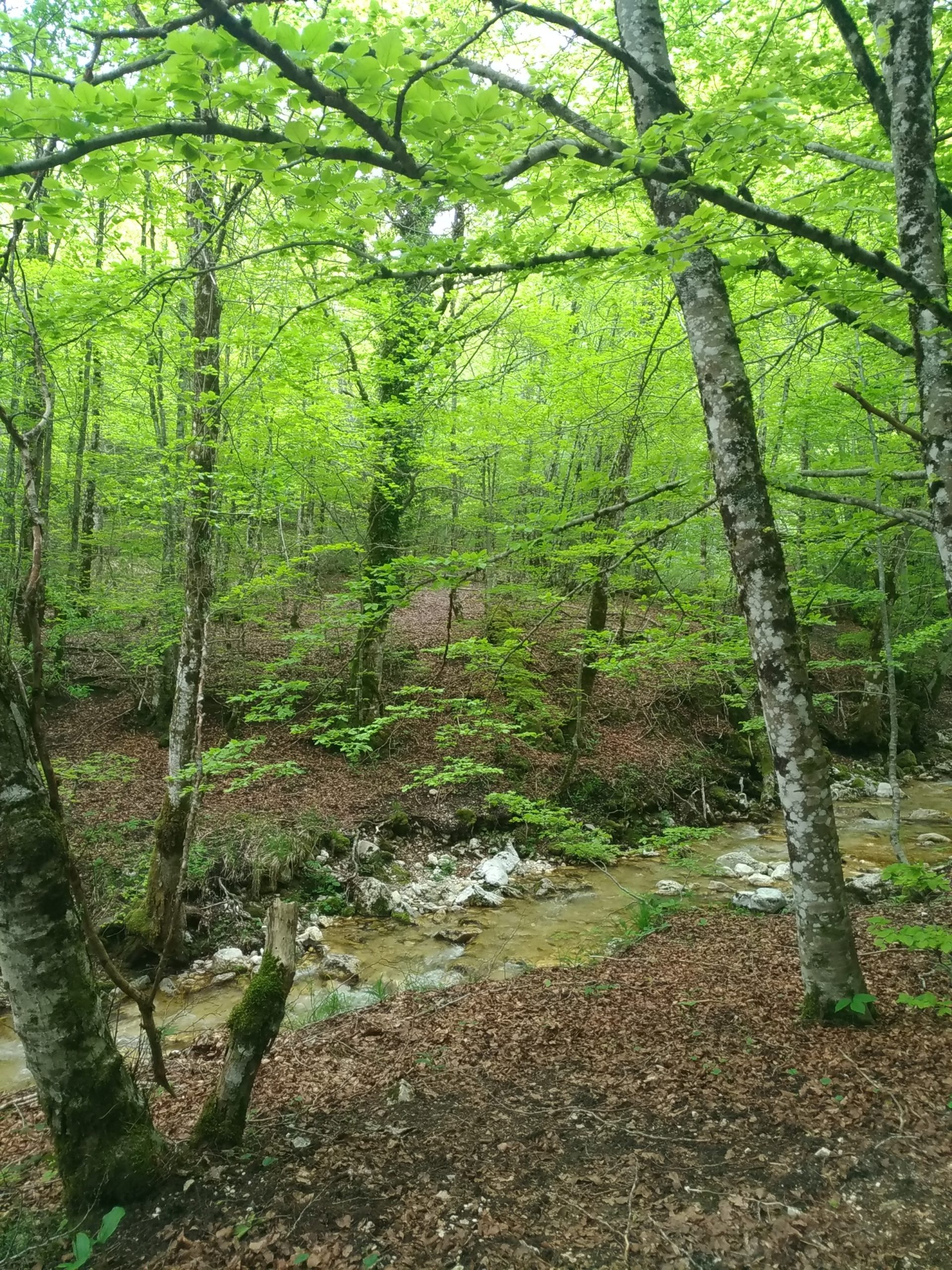
Towards a Strategy for the Sustainable Management of Mediterranean Forests (StrategyMedFor)
The StrategyMedFor project, co-financed by the Interreg Euro-MED programme, was launched at the University of Malaga during a two day meeting that took place on March 18 and 19, 2024. The European Topic Centre on Spatial Analysis and Synthesis (ETC-UMA), ...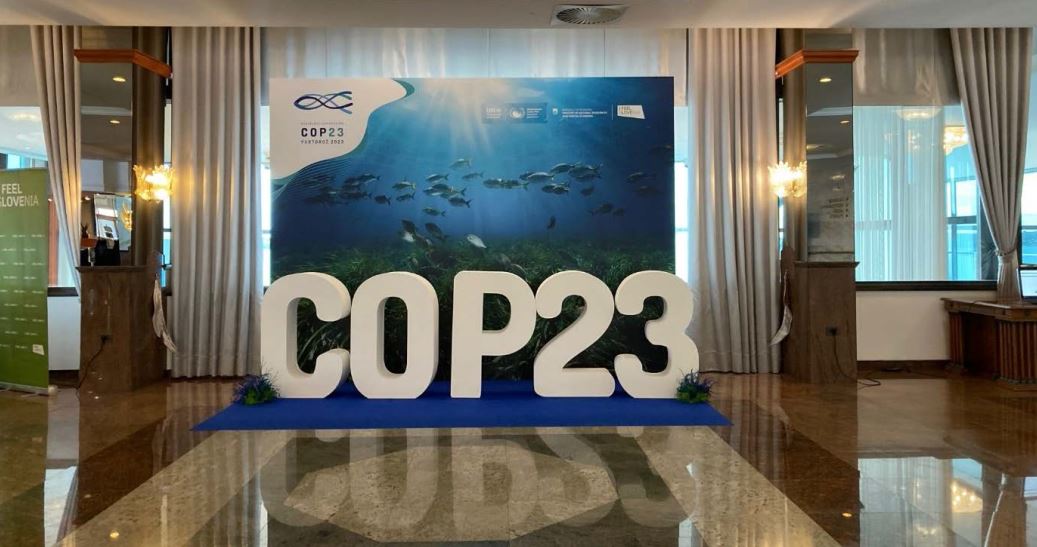
Collaborative science for forests by ETC-UMA showcased in Slovenia during the COP23
As UNEP MAP partner organization, ETC-UMA recently engaged in the organization of a session with Mediterranean institutions under the topic of climate change, entitled: From COASTAL to FOREST ecosystems: Mediterranean Nature-based Solutions to tackle climate change and ensure the Resilience ...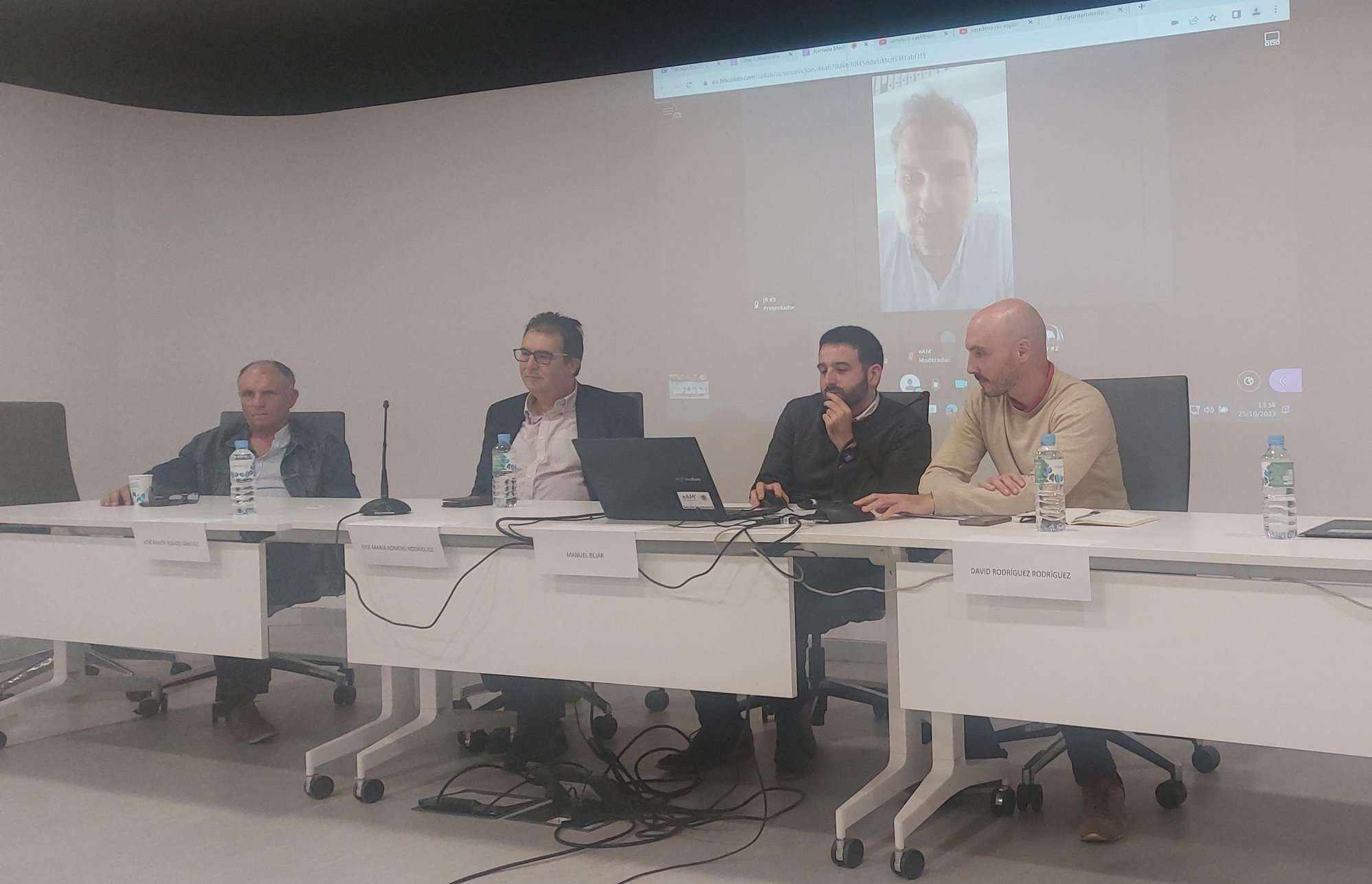
Tools for conserving the Spanish coast
On the initiative of the Instituto Universitario Hábitat Territorio y Digitalización (iHTD) of the University of Malaga, around 70 representatives of Spanish public administrations, researchers, architecture and environmental science players and civil society signed up to the second debate on ...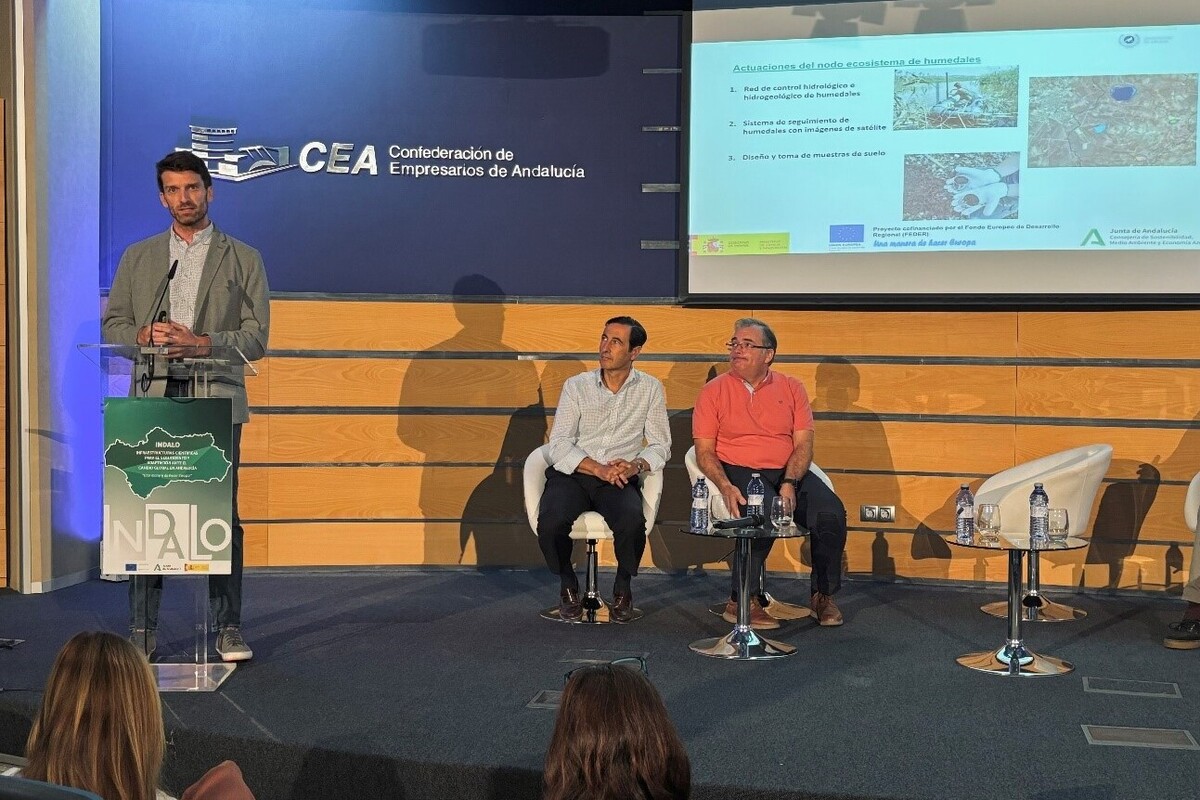
GreenEye System: a cloud-based system to monitor wetlands in Andalusia
Developed in the frame of the LifeWatch INDALO project cofinanced by the European Regional Development Fund (ERDF) for the study of biodiversity and global change in Andalucia, GreenEye System, this new cloud-based monitoring system, provides useful tools for wetlands’ assessment, ...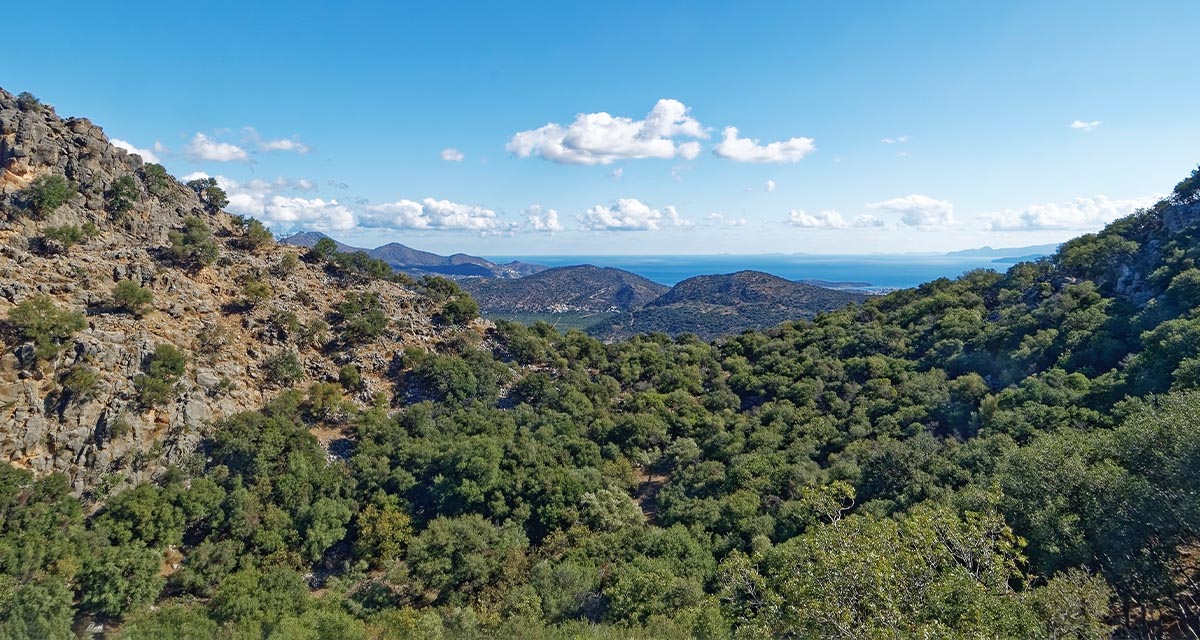
Looking back and forth to Mediterranean Forests
Timely published to enrich the knowledge available to fight fires and climate change challenges after an extremely hot summer, the proceedings of the Seventh Mediterranean Forest Week “Forest and Ecosystem Restoration for the next Mediterranean Generations” held from 21 to ...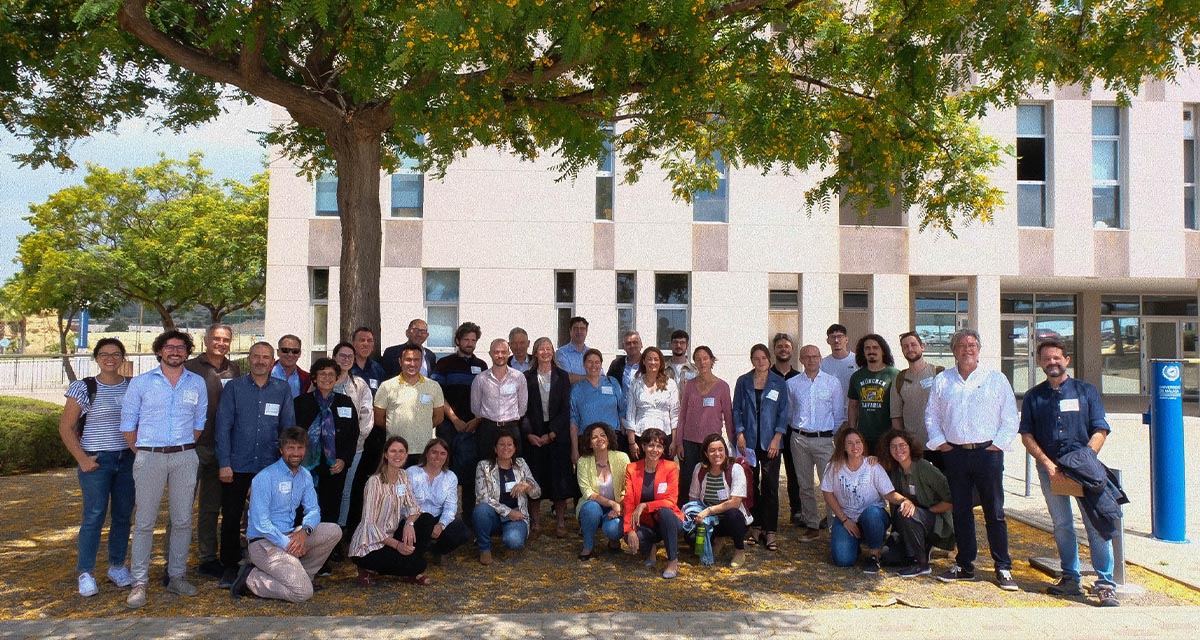
More space for innovative Mediterranean forest data partnerships
The report entitled A knowledge baseline on Mediterranean forests supported by innovation launched in July by ETC-UMA provides a highlight of what Mediterranean countries and institutions are doing to integrate new digital, satellite and Artificial Intelligence technologies into forest monitoring ...

